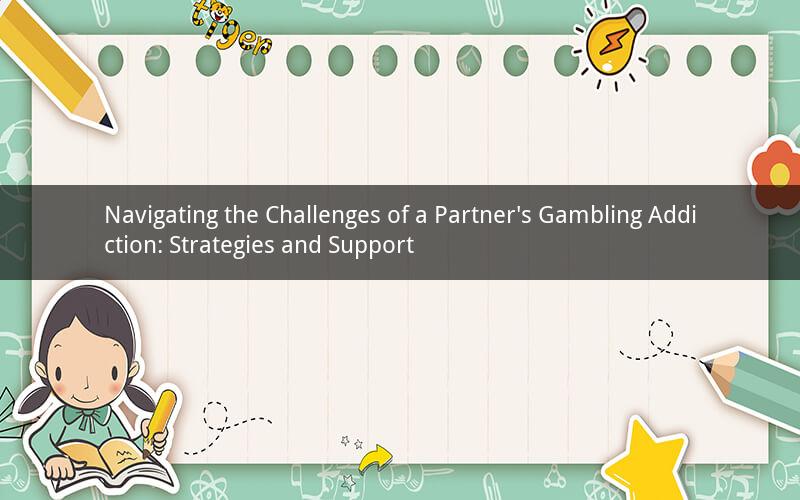
Introduction:
Gambling addiction can be a devastating issue, not only for the individual struggling with the problem but also for their loved ones. Understanding what to do when your partner has a gambling addiction is crucial in offering support and creating a path to recovery. This article delves into various strategies and resources that can help you navigate this challenging situation.
Understanding Gambling Addiction:
To effectively address your partner's gambling addiction, it's important to have a clear understanding of the condition. Gambling addiction is characterized by an inability to control gambling behavior, leading to significant negative consequences in various aspects of life, including finances, relationships, and mental health.
Signs of a Gambling Addiction:
Recognizing the signs of a gambling addiction is the first step in helping your partner. Common signs include:
1. Increasing time spent on gambling activities
2. Borrowing money to fund gambling habits
3. Lying about gambling activities
4. Isolating from friends and family
5. Neglecting responsibilities at work or home
6. Experiencing mood swings or irritability
7. Experiencing physical symptoms, such as headaches or insomnia
Supporting Your Partner:
Supporting your partner through their gambling addiction is essential for their recovery process. Here are some strategies to consider:
1. Educate Yourself: Learn about gambling addiction, its effects, and available treatment options. This knowledge will help you better understand your partner's struggles and offer appropriate support.
2. Encourage Communication: Encourage open and honest communication with your partner. Create a safe space where they can express their feelings and concerns without fear of judgment or criticism.
3. Establish Boundaries: Set clear boundaries regarding finances, privacy, and other areas of your relationship. This may involve limiting access to gambling websites or removing credit cards to prevent financial harm.
4. Encourage Professional Help: Encourage your partner to seek professional help from a therapist or counselor specializing in gambling addiction. Therapy can provide personalized strategies for overcoming the addiction and addressing underlying issues.
5. Attend Support Groups: Joining a support group for partners of individuals with gambling addiction can provide valuable resources, advice, and emotional support. These groups can help you navigate the challenges of your situation and connect with others facing similar experiences.
6. Be Patient and Understanding: Recovery from a gambling addiction is a long and challenging process. Offer patience, understanding, and empathy as your partner works through their struggles.
7. Take Care of Yourself: It's important to prioritize your own well-being during this difficult time. Seek support from friends, family, or professionals to help you cope with the emotional and psychological toll of your partner's addiction.
Treatment Options:
Several treatment options are available for individuals struggling with gambling addiction. These may include:
1. Cognitive Behavioral Therapy (CBT): CBT helps individuals develop healthier coping mechanisms and address underlying issues contributing to their gambling addiction.
2. Support Groups: Support groups, such as Gamblers Anonymous, provide a safe and supportive environment for individuals to share their experiences and receive guidance from others who have faced similar challenges.
3. Inpatient or Outpatient Treatment Programs: These programs offer structured treatment and support for individuals struggling with gambling addiction, with varying lengths of stay depending on the severity of the addiction.
4. Medication: In some cases, medication may be prescribed to help manage symptoms associated with gambling addiction, such as depression or anxiety.
5. Financial Counseling: Financial counseling can help individuals address the financial consequences of their gambling addiction and develop strategies for managing their finances moving forward.
Frequently Asked Questions:
1. Can a gambling addiction be cured?
Answer: While there is no guaranteed cure for a gambling addiction, treatment and support can significantly improve an individual's chances of recovery. With the right approach, many individuals are able to overcome their addiction and lead fulfilling lives.
2. How can I help my partner stop gambling?
Answer: Encouraging your partner to seek professional help, establishing boundaries, and providing emotional support are effective ways to help them address their gambling addiction. It's important to remember that recovery is a process, and patience and understanding are crucial.
3. Will my partner's gambling addiction ever go away?
Answer: Recovery from a gambling addiction is a lifelong process. While many individuals are able to maintain sobriety for extended periods, relapse is possible. Providing ongoing support and encouragement is essential for long-term recovery.
4. Can my partner's gambling addiction affect our relationship?
Answer: Absolutely. A gambling addiction can strain relationships due to financial problems, trust issues, and emotional turmoil. By offering support and seeking help, you can work together to overcome these challenges and strengthen your bond.
5. What can I do if my partner's gambling addiction is causing financial harm?
Answer: It's important to address financial concerns promptly. Consider seeking the assistance of a financial counselor to help manage debts and develop a budget. Establishing boundaries regarding finances can also prevent further financial harm.